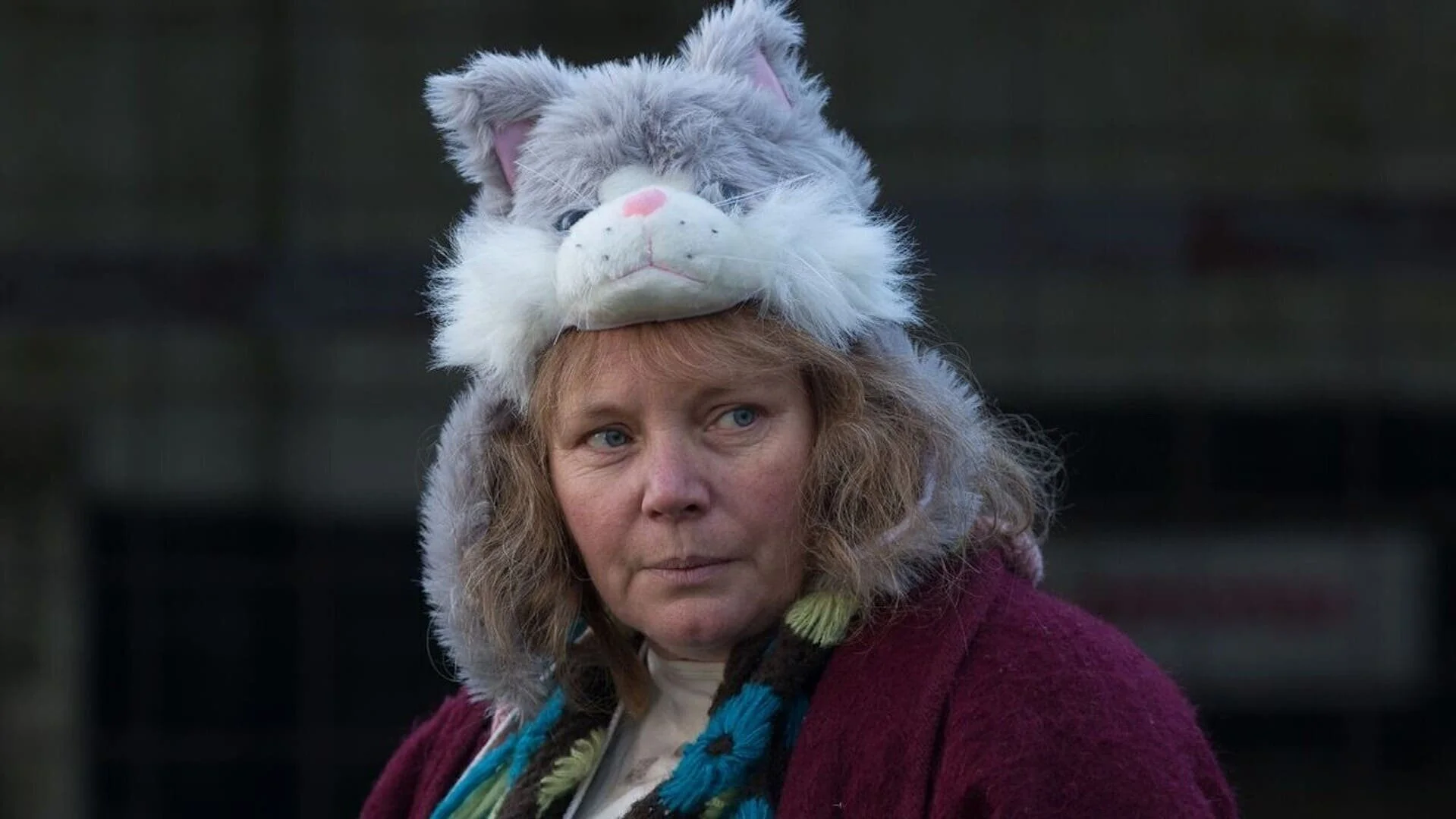Pin Cushion
An extraordinary but ultimately unsatisfactory film that often disturbs.
Joanna Scanlan
There is no denying that Pin Cushion, a first feature by its writer/director Deborah Haywood, is a remarkable piece of work. That stems in part from the fact that it is very well acted with fine performances by both of its two leading actresses who appear as mother and daughter. Joanna Scanlan (well known on television but probably best remembered in cinema for her fine portrayal of Charles Dickens’s wife in 2013’s The Invisible Woman) is Lyn, eccentric, middle-aged and hunchbacked. She is the single mother of Iona, a teenager played by Lily Newmark. This odd couple move to a town in Derbyshire and, despite their close bonds or even because of them, it soon becomes apparent that both in their own way are fantasists. On becoming a pupil at a local school, Iona kids herself that she will make friends there: when a clique of girls headed by Keely (Sacha Cordy-Nice) make overtures to her she quite fails to see that these girls are planning to tease and humiliate her. So deceived is she that, in taking up with them, she ignores fellow student Daz (Loris Scarpa) who had genuinely sought a relationship with her. We see too that Iona has built up a fantasy world of her own, one in which her mother is an attractive air hostess. As for her real mother, when lending a ladder to a neighbour who has no intention of returning it, Lyn at once convinces herself that she has found a new friend. In addition to that, she invents before long an imaginary beau supposedly courting her, while in her home she talks to her real companion, a budgerigar, regarding it as a son to herself and as a brother to Iona. The locals seek to avoid her claiming that she smells.
The acting here is so good that we are drawn into this bizarre world and an extraordinary music score by Natalie Holt plays a crucial role in this by commenting on this element of naive fantasy. Thus, it is that we are enabled to accept as part and parcel of Haywood’s concept both that aspect and the cruel realities depicted as inherent in the real world. But, as the tale develops further, it becomes increasingly clear that bullying affecting both mother and daughter is central here and, as the film proceeds relentlessly in this direction, one comes to ask who would want to pay to see what is, doubtless deliberately, a very uncomfortable piece. But that is not the only problem. As with that other recent release Racer and the Jailbird, one comes to feel that the agonies that build up are the ruthless creation of the writer, while the events depicted come to seem increasingly unlikely - sometimes they are just details that fail to convince, but a climactic event also falls into that category. There must be many real-life cases of bullying that end tragically, but ultimately I failed to be persuaded by the story being told here and so for me the film fell apart. Yet I can’t stress too strongly that Haywood’s film displays a genuinely individual talent and that Lily Newmark, notwithstanding that Iona as written sometimes feels a little too naive, looks like a young actress with a very bright future indeed.
MANSEL STIMPSON
Cast: Lily Newmark, Joanna Scanlan, Chanel Cresswell, Isy Suttie, Nadine Coyle, Jacob Lee, Lennon Bradley, Loris Scarpa, Sacha Cordy-Nice, Saskia Paige-Martin, Bethany Antonia, Sophia Tuckey, Aury Wayne.
Dir Deborah Haywood, Pro Gavin Humphries and Maggie Montieth, Screenplay Deborah Haywood, Ph Nicola Daley, Pro Des Francesca Massariol, Ed Anne Dick and Nick Emerson, Music Natalie Holt, Costumes Andy Blake.
British Film Institute/Dignity Film Finance/Quark Films/Creative England/BBC Films-Pinpoint.
82 mins. UK. 2017. Rel: 13 July 2018. Cert. 15.


